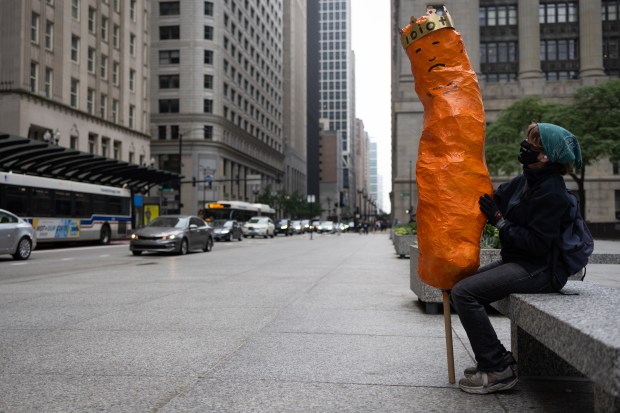After debating how two referendum questions should be written, Skokie’s Village Board moved closer to voting on whether to place them on the ballot for the Nov. 5 election.
The law firm Klein, Thorpe and Jenkins, which the village had hired in May to put together the ranked choice voting question for $2,000, per village records, made its first presentation to the topic to the Village Board at its July 1 meeting.
The board was also presented proposed referendum questions drafted by village staff that, if approved by the Board, will ask residents if they wish to instill term limits for mayor, trustees and clerk.
In a memo presented to the village board in April, Village Manager John Lockerby said, “there are a number of considerations as ranked choice voting has not yet been implemented in Illinois including Cook County,” and that while Evanston has approved ranked choice voting, it is not currently being used by the city for its elections as the Cook County Clerk’s Office works out procedures.
If approved, ranked choice voting and term limits will only apply for village positions of mayor, clerk and trustees. Other governing bodies that Skokie voters elect, including school boards, will not be affected by the changes.
In a ranked choice voting system, voters select the candidate who is their first choice and then have the option to rank additional candidates. If a candidate receives more than half of votes as a first choice, they win. If no candidate receives a majority, the candidate with the lowest number of votes is eliminated and each of their votes are redistributed to their supporters’ second choice candidate, and so on, until one candidate secures more than 50% of the votes.
“If the village moves forward with this, I think it is important to explain, in particular, the at large voting formula and how it it will work,” said Scott Uhler, an attorney with Klein, Thorpe and Jenkins.
Trustee James Johnson said he was encouraged to see more municipalities start to embrace ranked choice voting and that he was proud that Skokie was a part it. “Ranked choice voting literally kind of expands the amount of choice you have when you cast your vote. It allows you to really communicate your preference in a deeper way,” he said.
“It minimizes strategic voting. So if you really — if your conscience is saying I really want to vote for this candidate, even if you don’t think they have a chance to win, you know you’re not throwing away your vote for them, because you can rank a more likely option second,” Johnson said.
Johnson added that ranked choice voting can discourage negative campaigning because candidates will want their opponent’s voter base to also be attracted to them as a second choice.
Corporation Counsel Michael Lorge said the topic of term limits has come up “for a number of years.” He said, “we did a fair amount of research of looking at other municipalities that have term limits. They’re varied, as many of these things are… based on that, and again looking to other well-established communities that have term limits, we have come forward with this suggested recommendation.”
If voters approve the term limits referendum, Skokie elected officials will be limited to serve up to three four-year terms, but will not count towards staggered elections for district trustees in the 2025 board election. The term limits would function proactively, meaning that current elected officials can still run for three more terms.
Back when the resolution was introduced to the Village Board in April, Mayor George Van Dusen, who has served as mayor since 1999, said he did not feel he was a target of those who wished to implement term limits. He said he would want for the board to decide if they want to ask voters if they are interested in term limits and ranked choice voting.
“I want to thank you very much for drawing up this resolution,” said Trustee Alison Pure Slovin. “I think I have been very clear that I am in favor of it. I think term limits are very important.”
“I just really want to say I want to give the voters the choice on this. I have heard from so many people since we have started discussion on both ends. I think it’s important people get the right to make their choice,” said Trustee Edie Sue Sutker.
Lorge said the term limits are a “sweet spot” for elected officials to serve the village, while also allowing elected officials who have the experience and wisdom to continue to run the village.
“In theory, I think we’ve hit upon something that creates the process of refreshing and still allows electeds to serve for enough time… it takes a good term to get a lot of this under your belt and to understand it. So, to bring that information and that growth of knowledge over a period of three terms seems to be what we’re recommending as a logical place to land,” Lorge said.
Johnson said he was supportive of the idea, but said the question formed by the village’s staff was a bit wordy. Lorge said the question had to be self-actuating and contain enough information.
At the April 2025 board elections, Skokie voters will be able to also vote with a new election paradigm that makes elections non-partisan, allows voters to cast ballots in staggered-year elections, and allows voters to vote for a trustee to represent their geographic district, at-large trustees, and clerk and mayor.




